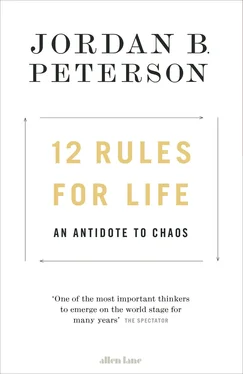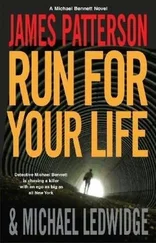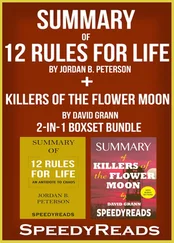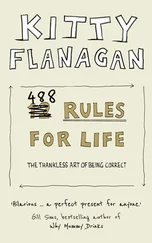Rules? More rules? Really? Isn’t life complicated enough, restricting enough, without abstract rules that don’t take our unique, individual situations into account? And given that our brains are plastic, and all develop differently based on our life experiences, why even expect that a few rules might be helpful to us all?
People don’t clamour for rules, even in the Bible … as when Moses comes down the mountain, after a long absence, bearing the tablets inscribed with ten commandments, and finds the Children of Israel in revelry. They’d been Pharaoh’s slaves and subject to his tyrannical regulations for four hundred years, and after that Moses subjected them to the harsh desert wilderness for another forty years, to purify them of their slavishness. Now, free at last, they are unbridled, and have lost all control as they dance wildly around an idol, a golden calf, displaying all manner of corporeal corruption.
“I’ve got some good news … and I’ve got some bad news,” the lawgiver yells to them. “Which do you want first?”
“The good news!” the hedonists reply.
“I got Him from fifteen commandments down to ten!”
“Hallelujah!” cries the unruly crowd. “And the bad?”
“Adultery is still in.”
So rules there will be—but, please, not too many. We are ambivalent about rules, even when we know they are good for us. If we are spirited souls, if we have character, rules seem restrictive, an affront to our sense of agency and our pride in working out our own lives. Why should we be judged according to another’s rule?
And judged we are. After all, God didn’t give Moses “The Ten Suggestions,” he gave Commandments; and if I’m a free agent, my first reaction to a command might just be that nobody, not even God, tells me what to do, even if it’s good for me. But the story of the golden calf also reminds us that without rules we quickly become slaves to our passions—and there’s nothing freeing about that.
And the story suggests something more: unchaperoned, and left to our own untutored judgment, we are quick to aim low and worship qualities that are beneath us—in this case, an artificial animal that brings out our own animal instincts in a completely unregulated way. The old Hebrew story makes it clear how the ancients felt about our prospects for civilized behaviour in the absence of rules that seek to elevate our gaze and raise our standards.
One neat thing about the Bible story is that it doesn’t simply list its rules, as lawyers or legislators or administrators might; it embeds them in a dramatic tale that illustrates why we need them, thereby making them easier to understand. Similarly, in this book Professor Peterson doesn’t just propose his twelve rules, he tells stories, too, bringing to bear his knowledge of many fields as he illustrates and explains why the best rules do not ultimately restrict us but instead facilitate our goals and make for fuller, freer lives.
The first time I met Jordan Peterson was on September 12, 2004, at the home of two mutual friends, TV producer Wodek Szemberg and medical internist Estera Bekier. It was Wodek’s birthday party. Wodek and Estera are Polish émigrés who grew up within the Soviet empire, where it was understood that many topics were off limits, and that casually questioning certain social arrangements and philosophical ideas (not to mention the regime itself) could mean big trouble.
But now, host and hostess luxuriated in easygoing, honest talk, by having elegant parties devoted to the pleasure of saying what you really thought and hearing others do the same, in an uninhibited give-and-take. Here, the rule was “Speak your mind.” If the conversation turned to politics, people of different political persuasions spoke to each other—indeed, looked forward to it—in a manner that is increasingly rare. Sometimes Wodek’s own opinions, or truths, exploded out of him, as did his laugh. Then he’d hug whoever had made him laugh or provoked him to speak his mind with greater intensity than even he might have intended. This was the best part of the parties, and this frankness, and his warm embraces, made it worth provoking him. Meanwhile, Estera’s voice lilted across the room on a very precise path towards its intended listener. Truth explosions didn’t make the atmosphere any less easygoing for the company—they made for more truth explosions!—liberating us, and more laughs, and making the whole evening more pleasant, because with de-repressing Eastern Europeans like the Szemberg-Bekiers, you always knew with what and with whom you were dealing, and that frankness was enlivening. Honoré de Balzac, the novelist, once described the balls and parties in his native France, observing that what appeared to be a single party was always really two. In the first hours, the gathering was suffused with bored people posing and posturing, and attendees who came to meet perhaps one special person who would confirm them in their beauty and status. Then, only in the very late hours, after most of the guests had left, would the second party, the real party, begin. Here the conversation was shared by each person present, and open-hearted laughter replaced the starchy airs. At Estera and Wodek’s parties, this kind of wee-hours-of-the-morning disclosure and intimacy often began as soon as we entered the room.
Wodek is a silver-haired, lion-maned hunter, always on the lookout for potential public intellectuals, who knows how to spot people who can really talk in front of a TV camera and who look authentic because they are (the camera picks up on that). He often invites such people to these salons. That day Wodek brought a psychology professor, from my own University of Toronto, who fit the bill: intellect and emotion in tandem. Wodek was the first to put Jordan Peterson in front of a camera, and thought of him as a teacher in search of students—because he was always ready to explain. And it helped that he liked the camera and that the camera liked him back.
That afternoon there was a large table set outside in the Szemberg-Bekiers’ garden; around it was gathered the usual collection of lips and ears, and loquacious virtuosos. We seemed, however, to be plagued by a buzzing paparazzi of bees, and here was this new fellow at the table, with an Albertan accent, in cowboy boots, who was ignoring them, and kept on talking. He kept talking while the rest of us were playing musical chairs to keep away from the pests, yet also trying to remain at the table because this new addition to our gatherings was so interesting.
He had this odd habit of speaking about the deepest questions to whoever was at this table—most of them new acquaintances—as though he were just making small talk. Or, if he did do small talk, the interval between “How do you know Wodek and Estera?” or “I was a beekeeper once, so I’m used to them” and more serious topics would be nanoseconds.
One might hear such questions discussed at parties where professors and professionals gather, but usually the conversation would remain between two specialists in the topic, off in a corner, or if shared with the whole group it was often not without someone preening. But this Peterson, though erudite, didn’t come across as a pedant. He had the enthusiasm of a kid who had just learned something new and had to share it. He seemed to be assuming, as a child would—before learning how dulled adults can become—that if he thought something was interesting, then so might others. There was something boyish in the cowboy, in his broaching of subjects as though we had all grown up together in the same small town, or family, and had all been thinking about the very same problems of human existence all along.
Peterson wasn’t really an “eccentric”; he had sufficient conventional chops, had been a Harvard professor, was a gentleman (as cowboys can be) though he did say damn and bloody a lot, in a rural 1950s sort of way. But everyone listened, with fascination on their faces, because he was in fact addressing questions of concern to everyone at the table.
Читать дальше












